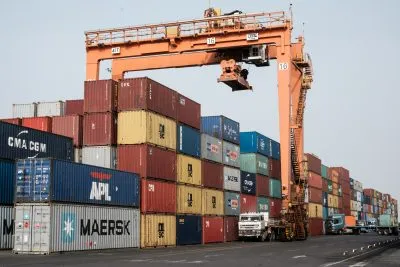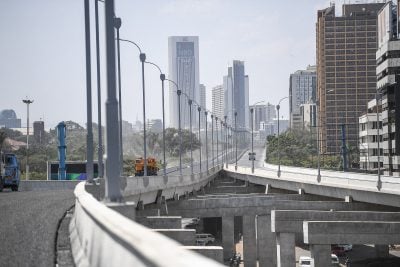With broad experience in a number of financial institutions, Sierra Leone’s Samura Kamara believes he is the right person to ensure the AfDB works for Africa. Interview by Daniela Severino.
If appointed, what would be your first action as president?
The Bank is not a learning curve for our president. Time is not on our side. Africa is on the surge, on the move. So the very first thing you want to do is engage the executive board of directors. We have a 10-year strategy. Unfortunately it started in 2013, and just about the time when we are implementing it, the president is going. So you have to put that into perspective, and the board of executive directors should help you do that.
Why would you make a good president?
I think I have a clear mix of skills and experience in general economic management. It’s not about me coming in as specialist in one small area. I’ve been policy leader in the broad aspects of policy development in Sierra Leone. In my engagement with the international community, I’ve learnt a lot, I know the views. I can deal with the IMF, the World Bank and Arab funding agencies.
What needs to be changed in the way the AfDB operates for it to help Africa really take off?
The 10-year strategy is good, but we need to put it into context. The AfDB can have a general view but you have to be very specific. It’s not one size fits all. And that’s why I will focus on the country offices and regional offices, give them more power, strengthen them allow them to develop their outreach.
Can you give a concrete example of something AfDB does that other development banks do not?
In the case of Sierra Leone, more recently the AfDB has done well in terms of infrastructure development. There was a time when we were getting resources from the World Bank, other bilaterals, but as the ’90s progressed, a lot of them withdrew from infrastructure. The AfDB stayed on, which is very good for Africa. The only unfortunate thing is it doesn’t have enough resources.
The Bank’s strategy for 2013–2022 has been adopted. In this context, how can the new president pursue his or her own ideas and priorities?
When I read the document, I do not see the final details of a strategy, because a strategy lays a framework. You now need to do an activity profile, look at costing and resources. The AfDB must strengthen its knowledge of Africa, its communications network. You have a lot of geopolitical associations, China-Africa, Korea-Africa, Italy-Africa. There are opportunities in this, but they have not moved forward.
The decentralisation strategy has been criticised for being expensive and inefficient. Do you intend to continue it?
In our post-conflict construction, we found out that Sierra Leone was without local government for 30 years. And we thought that was a source for conflict because you are marginalising rural communities. We started decentralisation, and we benefited. In the context of the AfDB, that is one good window if the Bank wants to make a serious impact.
Want to continue reading? Subscribe today.
You've read all your free articles for this month! Subscribe now to enjoy full access to our content.
Digital Monthly
£8.00 / month
Receive full unlimited access to our articles, opinions, podcasts and more.
Digital Yearly
£70.00 / year
Our best value offer - save £26 and gain access to all of our digital content for an entire year!
 Sign in with Google
Sign in with Google 



